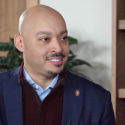Photo gallery Return to in-person journalist residencies with all-star lineup
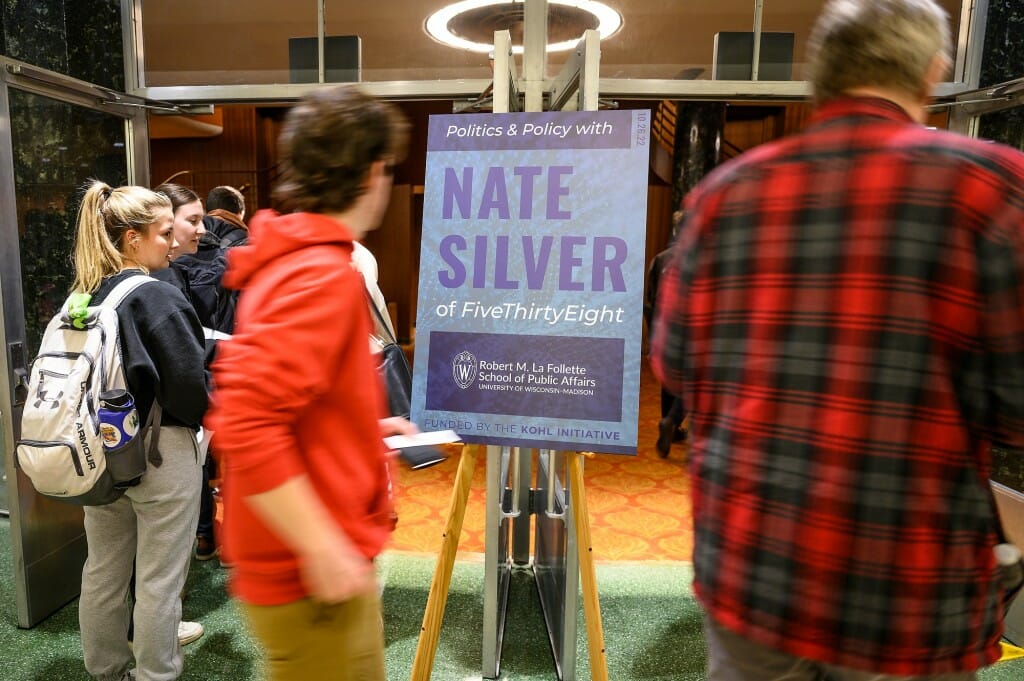
Audience members enter Shannon Hall in the Wisconsin Union Theater to attend the October event “Politics & Policy with Nate Silver of FiveThirtyEight.” Photo: Althea Dotzour
Top journalists from radio, television and online outlets visited the University of Wisconsin–Madison this semester to take part in its Sharon Dunwoody Journalist in Residence program.
The residency series kicked off in early October with a visit from Science Journalist in Residence Latif Nasser, co-host of the NYC Studios hit show Radiolab. Nasser is also host and executive producer of the Netflix science documentary series Connected.
In late October, prognosticator extraordinaire Nate Silver came to campus as this semester’s Public Affairs journalist in residence. Silver is the founder editor in chief of FiveThirtyEight. November saw a pleasantly-packed house for a visit from recent Peabody Award-winners Rund Abdelfatah and Ramtin Arablouei, co-hosts and producers of NPR’s podcast Throughline.
Finally, longtime (and recently retired) NBC Justice correspondent Pete Williams spent a week in Madison sharing a career’s worth of wisdom in early December as the Center for Journalism Ethics journalist in residence.
For more than 30 years, the residency program has sponsored campus visits from high-profile journalists, bringing their knowledge and expertise into UW classrooms, discussing research with faculty and staff and sharing their perspective in public events.
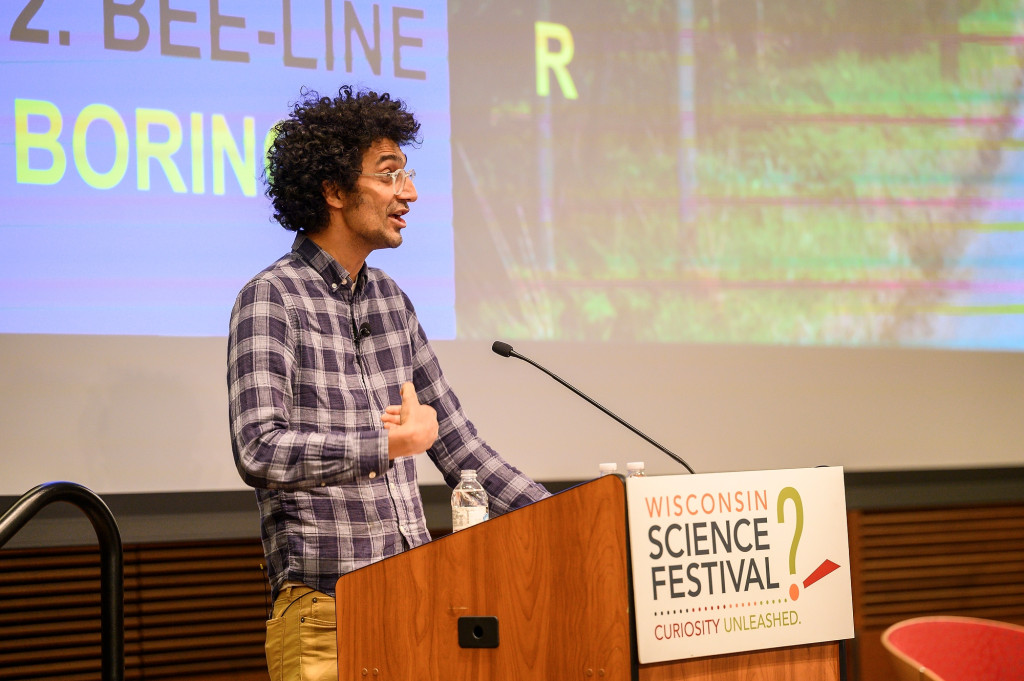
Latif Nasser, Radiolab host and UW–Madison Science Journalist in Residence shares tips during a Wisconsin Science Festival and Crossroads of Ideas event called “How to Hunt for Stories, and Not Kill Them in the Telling” in the Discovery Building at the University of Wisconsin–Madison on Oct. 13, 2022. In Nasser’s Bee Line For Boring slide, he encouraged listeners to read the most boring material they can find, but to make a game of it and try to try to find something meaningful and interesting. Using this technique, Nasser learned about a man named Oliver Sipple, which led to one of his favorite RadioLab episodes. (Photo by Althea Dotzour / UW–Madison) Photo by: Althea Dotzour
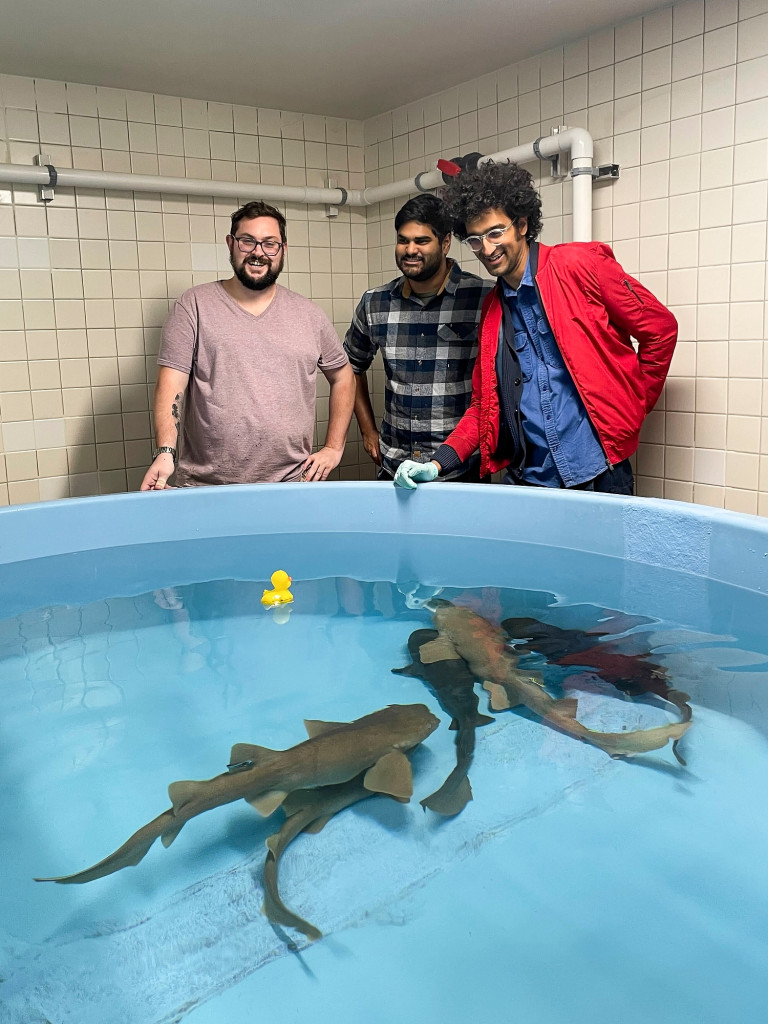
Nurse sharks swim over to check out Joe Gallant, Gihan Gunaratne and Latif Nasser in the lab of researcher Aaron LeBeau. LeBeau studies unique proteins similar to antibodies that can help prevent COVID-19 and its variants from infecting human cells. Photo by: Elise Mahon
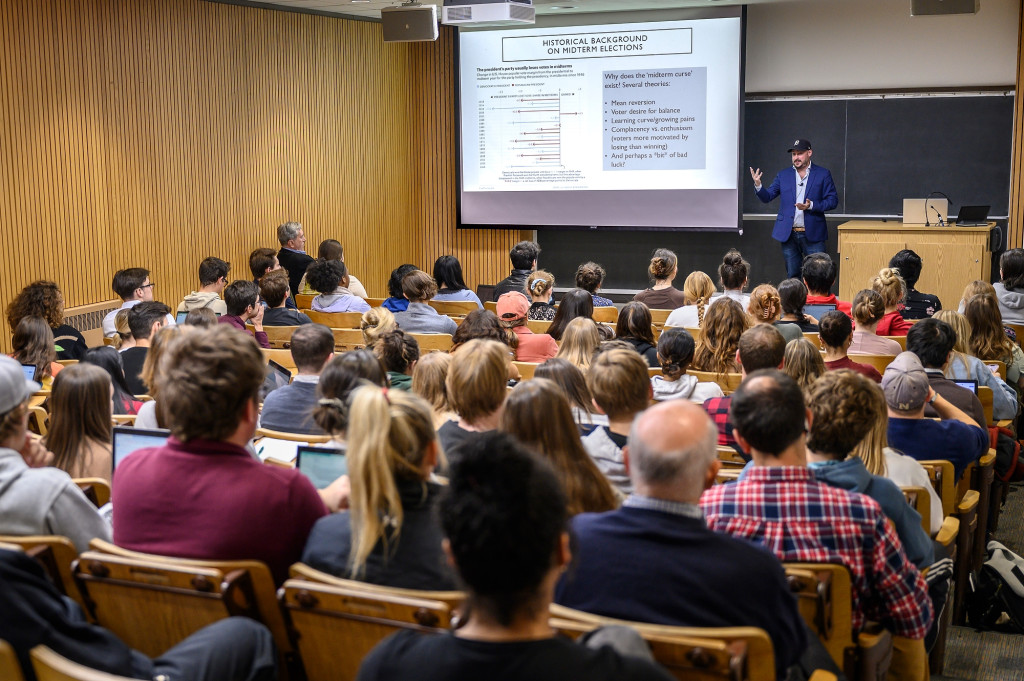
No big deal, just a classroom visit from Nate Silver, the guy who made statistical analysis a little bit famous. In this photo, Silver discusses a slide entitled “Historical notes on midterm elections” with students in a joint section of Tim Smeeding’s public policy issues class and Jim Doyle’s politics of state issues class.
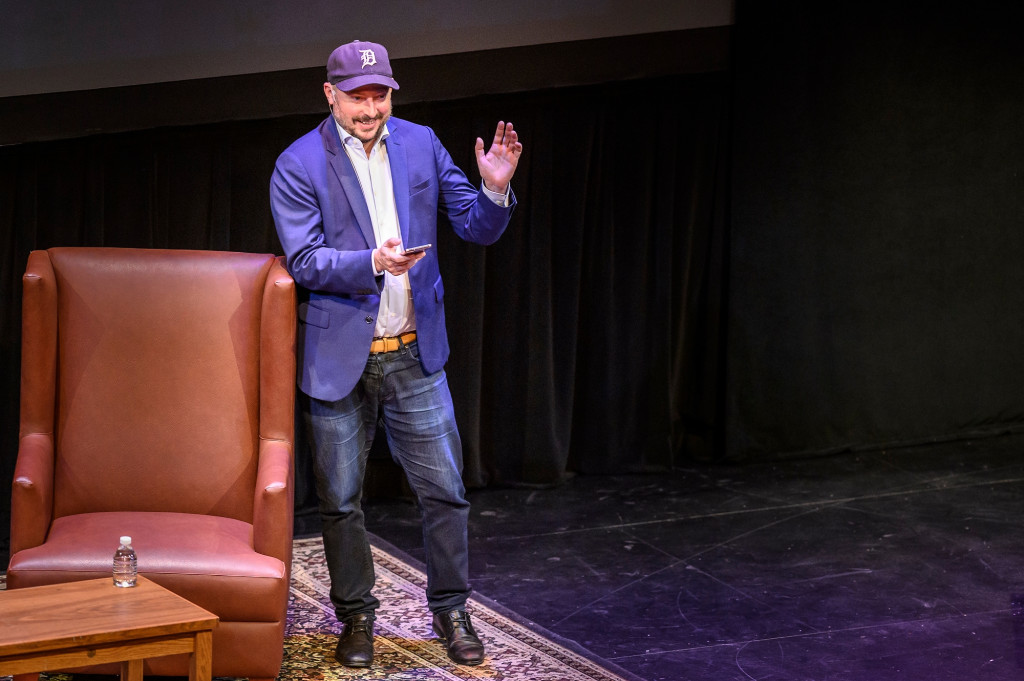
With midterm elections just around the corner, FiveThirtyEight founder Nate Silver checks the latest numbers on his phone for the Shannon Hall crowd at the Memorial Union on campus in late October. Photo by: Althea Dotzour
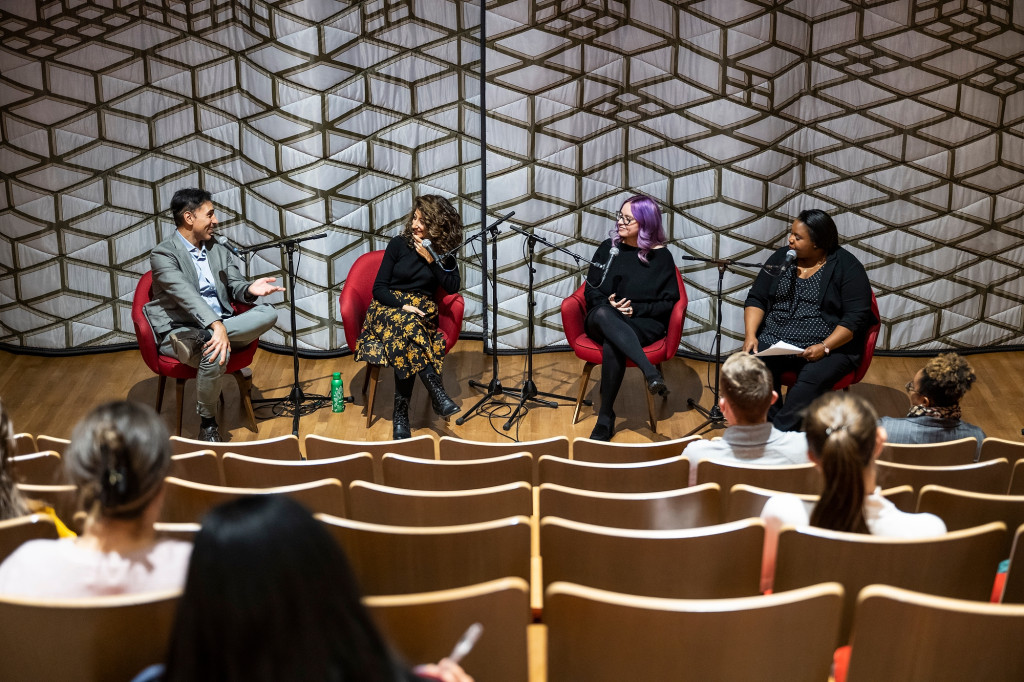
From left to right, Ramtin Arablouei and Rund Abdelfatah, co-hosts and co-producers of NPR’s podcast “Throughline,” and Kacie Lucchini Butcher, director of UW–Madison’s Public History Project, engage in a public panel discussion moderated by Christy Clark-Pujara (at far right), a professor of history in UW–Madison’s Department of Afro-American Studies, during a Diversity Forum event held at the Chazen Museum of Art. Photo by: Jeff Miller
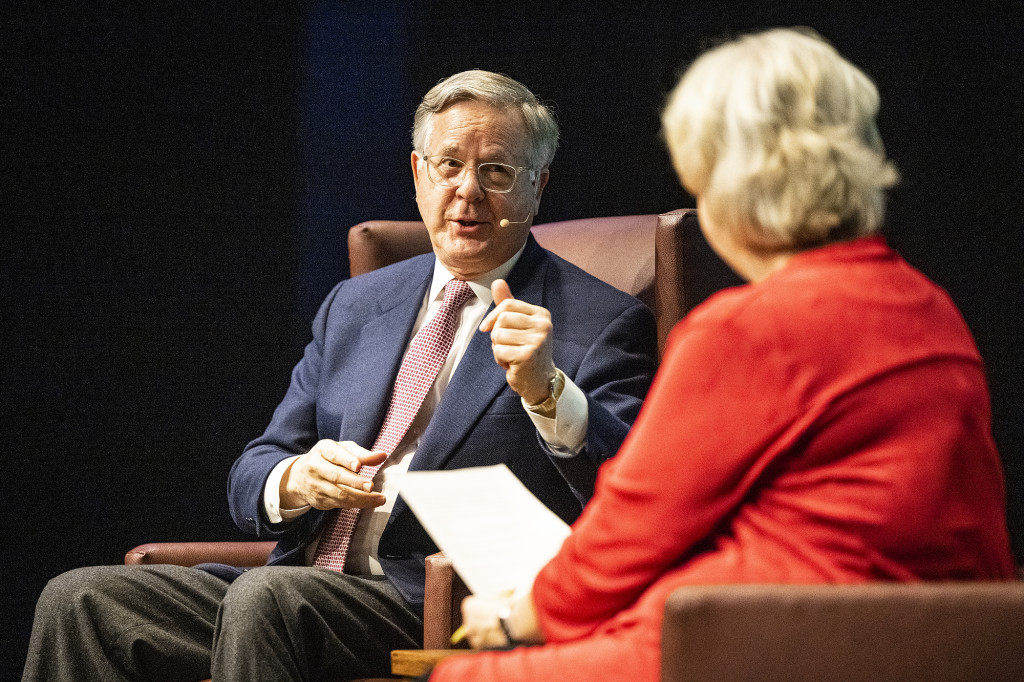
In a relaxed, discussion reminiscent of a fireside chat, longtime NBC Justice Correspondent Pete Williams warms to his topic with Center for Journalism Ethics Director Kathleen Culver. Williams’ event was called “Breaking Precedent: Journalism Ethics and the U.S. Supreme Court.” Photo by: Bryce Richter
Tags: journalism



